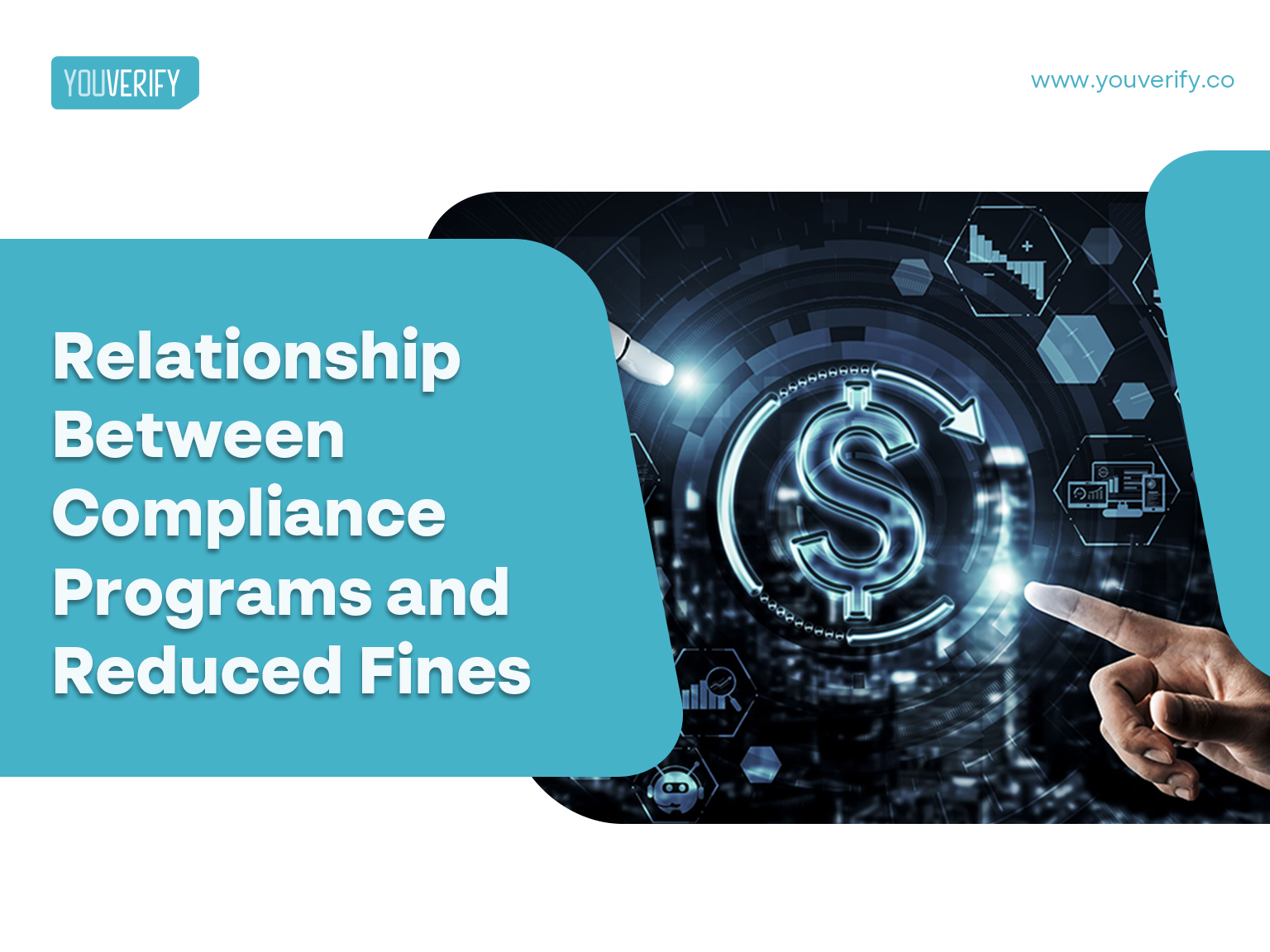Incompetent compliance programs will most likely lead to unsatisfying results such as; hefty fines levied, long-term legal battles and loss of trust from the customers, including potential customers, in the year 2023. Compliance fines have well crossed the one million mark; for example, crown resorts were fined $450 m by the Australian Transaction Report.
Compliance fines are a result of failed compliance programs or ignorance of compliance rules and regulations as well as ethics. Entities with a history of recurring fines or late penalties have shown that taking a proactive and strategic approach to compliance can result in more positive outcomes. These organisations were able to not only pacify regulatory officials but also achieve fine reductions.
This article highlights some of the success stories of entities with histories of recurring fines or late fines who were able to get regulatory agencies off their backs or get a reduction in fines. It also delivers cautionary tales or examples, illustrating that the biggest brands or well-known entities may still stumble or overlook compliance fines. Inadequate compliance programmes can result in expensive fines, court battles, and trust loss, whereas good compliance initiatives might result in decreased fines or the absence of sanctions entirely.
What Are Compliance Programmes? And Why They Help In the Avoidance of Reduction of Fines?
Compliance programmes are strategic measures used by businesses to operate within legal and ethical limitations. They prevent infractions by identifying risks, educating employees, and helping foster an ethical culture. This decreases the possibility of sanctions while also exhibiting collaboration and ethical commitment when violations occur. They do not avoid financial fines, but they also safeguard the reputation and stakeholder trust.
The key components of compliance programmes are:
1. Policies and Procedures
these are clear guidelines for adhering to the supposed complaint rules and regulations of a jurisdiction, country or industry. The whole basis of a compliance programme is the need to fulfil compliance rules and regulations. Different expectations and requirements may be needed for different kinds of companies and industries. Fintech companies have more specific requirements than manufacturing companies or gambling firms, etc.
2. Leadership Commitment
The leadership of the hierarchical structure of every commercial entity is a paramount constituent of every complaint program. Top management figures must be in endorsement for compliance programmes to float. Without the backing of an executive, the activities of a complaint team will only get frustrated or constantly backtracked, especially if the top management is well compromised. Nobody fills a bucket with holes or drives a car without fuel. Executives can be likened to being the fuel for a compliance programme. Compliance programs can only be aggressive and result oriented when executives of an organisation are dedicated to achieving complaint goals; dedication brings about drive.
3. Risk Assessment
An evaluation of the risks for a particular entity may be unique, especially when it is related to the nature of a company. Risks may be associated with the type of services provided and how they are provided. For example, an easy payment product which requires specific data such as B.V.N. numbers and social security numbers needs to stand up to the task of securing such sensitive data and adhering to the complaint regulation surrounding such complaint processes. Assessment or evaluation of risks allows for the setting of compliance goals.
4. Training and Education
For a compliance program to be successful, it is essential for staff on teams and the general staff to be educated on complaint procedures and requirements as well as the specific strategy the company aims to employ. This way, it can inform all procedures, regardless of the duties being dispensed.
5. Internal Control and Monitoring
Effective compliance programs should typically establish internal controls to monitor processes and activities for compliance. Monitoring helps identify deviations or anomalies, ver England allows for proactive corrections.
6. Reporting mechanisms
Reporting mechanisms should be set up within the system that allows for whistleblowing, which encompasses the protection of the employee who makes the report. This facilitates the report of illegal and ethical behaviour.
7. Proactive Corrections and Investigations
When violations occur, a clear process for investigating the issue and taking appropriate corrective actions is crucial. Investigations should be thorough and impartial and lead to effective solutions. This way, compliance procedures and standards can be preserved.
8. Thorough Record Keeping
Compliance programs should encompass accurate documentation and reporting of various activities. Comprehensive records can serve as evidence of the organisation’s commitment to compliance and can be invaluable in demonstrating cooperation in case of regulatory scrutiny.
9. Ethics And Values
Definite ethics and values should be present in every compliance program; this allows for discipline and a clear aim for compliance goals.
Embedding a strong ethical culture within the organisation reinforces compliance efforts. Emphasising core values and ethical behaviour discourages violations and encourages employees to act responsibly.
10. Effective Communication
Employees should be constantly updated on the changes in the compliance world and regulative legislation, as well as the changes and decisions on compliance strategies, as well as expectations in their complaints goals. This will allow for the effective execution of appropriate duties.
Success Stories OF Reduced Fines From Successful Compliance Programmes
a. BNP Paribas
The prominent French multinational banking and financial services company has faced its own share of hyper scrutiny, backlash and fines. However, it remains one of the largest banks in the world, with a significant global presence. It offers a wide range of services, in fact, from retail banking to asset management, investment banking and the like. Without a doubt, BNP Paribas is a major player in the financial industry.
However, in 2015, the French multinational bank was sentenced to five years probation by a U.S.U.S. judge in connection with a record $8.9 billion settlement on the basis of claiming that it violated sanctions against Sudan, Cuba and Iran.
This was the first time a global bank had ever pleaded guilty to violating U.S.U.S. economic sanctions. The sentencing followed BNP Paribas’ admission of guilt in July for conspiring between 2004 and 2012 to breach the International Emergency Economic Powers Act and the Trading with the Enemy Act. Acknowledging its shortcomings, BNP Paribas embarked on a multifaceted journey to rectify the situation and regain trust. The bank directed considerable efforts towards bolstering its compliance mechanisms.
By investing in advanced screening processes, risk assessments, and due diligence procedures, BNP Paribas aimed to preemptively identify transactions that could potentially breach sanctions. They also launched a complaint function that allows for improved compliance and the BNP Group Code of Conduct; subsequently, lesser fines have been issued against BNP Paribas.
b. Standard Chartered
In 2012, the company Standard Chartered faced allegations from U.S.U.S. regulators, stating that it violated economic sanctions by facilitating transactions with entities in Iran, Sudan, Libya and Burma. The bank acquired in Washington agreed to forfeit $227 million to the Justice Department for conspiring to breach the International Emergency Powers Act (I.E.E.P.A.). The bank decided to give up the funds as a component of a deferred prosecution deal with the Justice Department, alongside a similar arrangement with the New York County District Attorney’s Office. This was due to their infringement of New York state regulations, involving the unauthorised transfer of millions of dollars through the U.S.U.S. financial system for sanctioned entities from Iran, Sudan, Libya, and Burma. Additionally, the bank has settled matters with the Treasury Department’s Office of Foreign Assets Control (O.F.A.C.) and the Federal Reserve System’s Board of Governors.
c. Western Union
The global money transfer company faced fines for failing to prevent fraudulent and illegal transactions and for not having adequate anti-money laundering measures in place. In 2017 and 2018, the company was fined $586 million and $60 million. In 2020, stock prices in the company dropped, and the company also admitted to aiding illegal wire transfers. In contrast, it was reported in 2021 that $1.4 billion from fraudulent transactions were avoided by Western Union. According to the president and C.E.O. of western union, the year 2020 was a paradigm shift in compliance for the company. The company plans to eec more illegal money transfers even before they happen. They intend to conduct more than 300,000 partner engagements, which include raining or compliance reviews with Western Union partners, o further build the capacity to detect and prevent illegal or fraudulent activity within the financial system by 2025.
d. BitMex
From 2020 to 2021, Bitmex faced legal scrutiny and battles and was fined $100 million dollars for operating a trading platform without registration and violating multiple C.F.T.C. regulations, which included failing to implement required A.M.L. procedures. Its C.E.O., Arthur Hayes, admitted to the guilt and paid the fines to be spared from prison. Bitmex has implemented user verification processes and enhanced compliance procedures.
e. Paypal
From 2015 to 2021, PayPal, the renowned global online payment platform, went through a series of legal hurdles involving allegations that spanned from Anti-Money Laundering (AML) violations to insufficient risk management and product representation issues. These challenges resulted in fines and required or nudged PayPal to enhance its compliance efforts by reinforcing customer due diligence procedures and introducing real-time transaction monitoring. PayPal issued proactive path a to reinforce its compliance framework. Recognizing the significance of stringent customer due diligence, the company improved its procedures, placing a renewed emphasis on the verification of customer identities and transaction patterns. This approach aimed not only to prevent potential fraudulent activities but also to align with evolving industry best practices. PayPal introduced cutting-edge transaction monitoring systems. It was designed to identify and flag anomalies as they occurred, this proactive measure aimed to reduce risks and enhance overall security.
Bottom Line
With Youverify, a reg tech company, entities do not have to undergo unnecessary legal battles and disputes. Entries can also resolve complaint issues by adopting and implementing new complaint strategies aided by efficient and powerful tools and artificial intelligence tools offered by Youverify.
Notable brands such as; Wema Bank, Sanatransfer, Pesapeer, Standard Chartered, Opay, FCMB, Premium Trust Bank, trusts Youverify with their compliance processes. Book a demo today to learn how it works.













